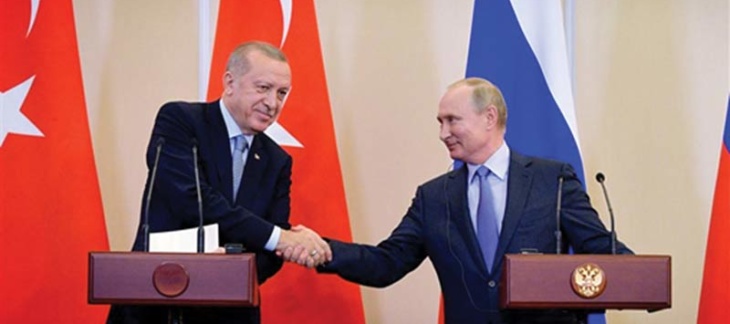Since independence, there has been no more accurate barometer of the malfeasance of Pakistan’s government or the volatility of its political system than the frequent fate of the country’s leaders – assassination, execution, prison or disgrace. Such is the fate of Pakistan’s former military ruler General Pervez Musharraf, who was…

December 2015 was a pivotal month in many respects. During the first week of December 2015, Donald Trump began to establish a substantial lead over his Republican primary opponents. Vice President Joseph Biden traveled to Ukraine to announce, on December 7th, a $190 million program to “fight corruption in law enforcement and reform the…

Without appropriate planning,the departure of US troops from Syria and Afghanistan could, warns Lawrence Sellin, have unintended and disturbing geopolitical consequences. Any major geopolitical withdrawal has the potential to produce a power vacuum. A successful outcome achieves burden shifting while securing US national interests and ensuring that America’s adversaries do not…

Few now doubt that the major U.S. media outlets, under the guise of journalism, function as political activists, saturating the airwaves and the internet with the talking points of the Democrat Party. There has long been liberal bias in the media, but deliberate efforts to undermine the traditional nonpartisan ideal…

Long before he met Donald Trump in August 2015, Lieutenant General Michael Flynn was a man marked by the Obama administration. To them, he was a dangerous ticking bomb because of his deep intelligence knowledge and his outspoken opposition to President Obama’s cavalier attitude toward the resurgent threat of terrorism…

For eighteen years, we have wrongly applied counterinsurgency doctrine to a proxy war waged by Pakistan against the U.S. and Afghanistan. Bilateral negotiations with the Taliban will not bring peace to Afghanistan nor will it provide an adequate strategy to underpin U.S. national interests in South Asia, the future threat…

President Donald Trump said Monday that negotiations with the Taliban “are dead” and indicated that he had no further interest in meeting with the group over an end to the Afghanistan war. The weakness of the US-Taliban negotiations resided in the fact that they concentrated on relatively narrow War on Terror yardsticks…
Virtually every aspect of American national security, including the detection of threats, the use of weapons, the deployment of forces and their resupply, is now dependent on the integrity of critical space-based capabilities. In defense parlance those systems are known as command, control, communications, computing, intelligence, surveillance and reconnaissance (C4ISR)…

In his June 23, 2019 Military Times opinion article “America’s three big mistakes in Afghanistan,” Brig. Gen. Donald C. Bolduc (Ret) correctly noted three factors, which contributed to the pending U.S. defeat in Afghanistan: “Misstep No. 1: The expansion of US forces and the introduction of large conventional units into…

Executive Summary The United States must now accept the fact that we failed to meet our objectives in Afghanistan and, upon withdrawal, the best outcome we can expect would be a new U.S. regional strategy that prevents our adversaries from benefitting from that failure. Pakistan, not Afghanistan, is the epicenter…

(Please note – the title is by the editor at “The National Interest,” where this article was originally published, and reflects less the point of the article, that U.S. leaders knew of Pakistan’s duplicity and permitted it, hoping that bribes to Pakistan or the ill-suited counterinsurgency strategy would work in…

Washington has overlooked the explosive potential of Islamic State influence in Pakistan, which will only accelerate in the expected power vacuum left after a U.S. withdrawal. How did a small, fringe Wahhabi splinter group, led by a fiery speaker with a sixth-grade education, known mainly for defacing Buddhist symbols, carry…
